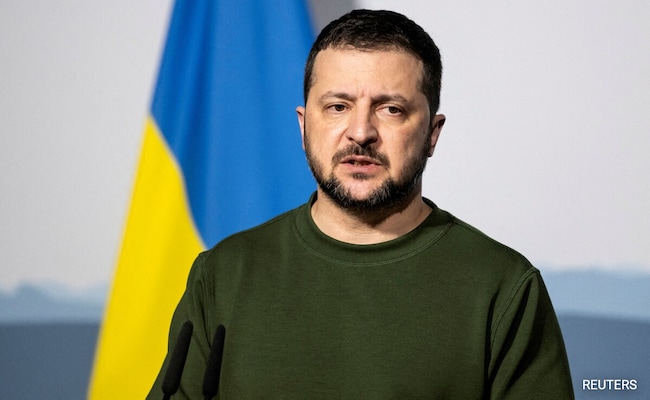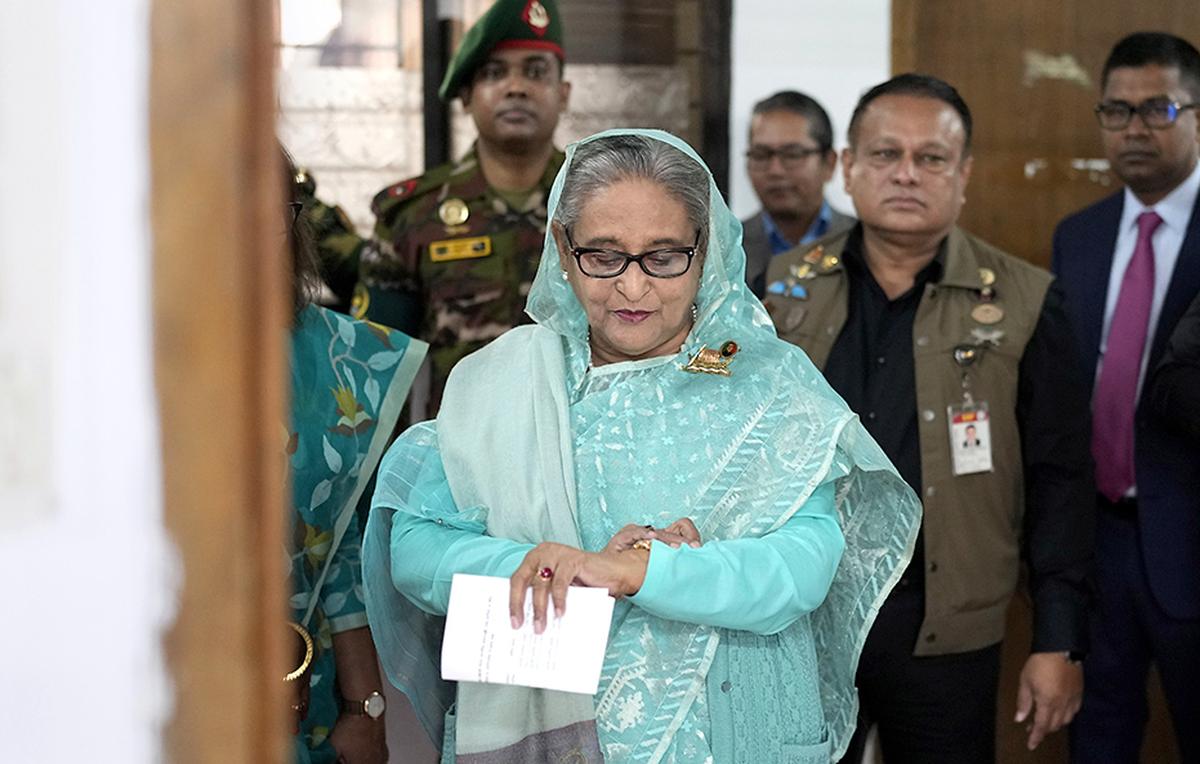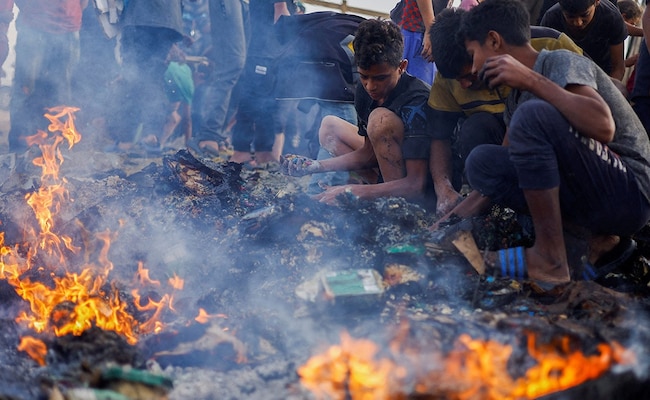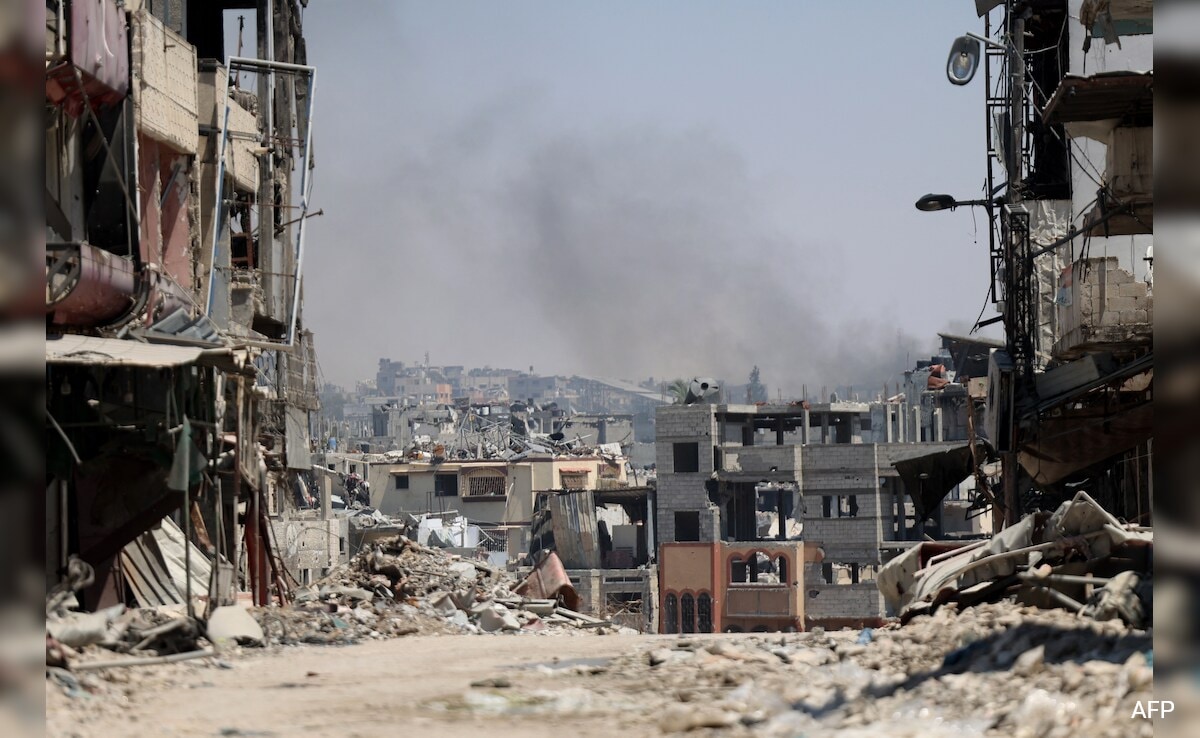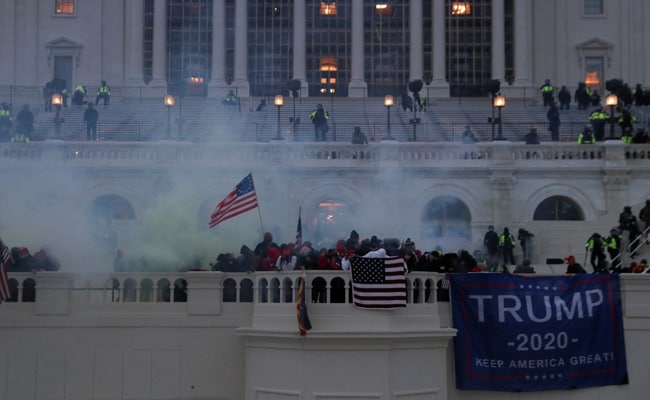As 2024 comes to an end, some geo-political realities remain the same from the previous year. Palestine is still under seige from Israel and the Russia-Ukraine war continues. Some nations, however, have effected changes, electing new heads of state and ushering in new diplomatic ties.
The stage is set for further changes in 2025. In December, South Korea impeached its President Yoon Suk-Yeol, and soon after, Prime Minister and acting President Han Duck-Soo. Meanwhile, Bangladesh is likely to hold fresh elections in 2025 (or early 2026), following the completion of reforms under the interim government headed by Prof. Muhammed Yunus.
We take a look at the results of some of 2024’s significant elections in Asia.
Bangladesh
File photo: Bangladesh Prime Minister Sheikh Hasina checks her watch as she waits for the official opening time to cast her vote in Dhaka, Bangladesh, on Sunday, January 7, 2024.
| Photo Credit:
AP
At the start of the year, Bangladesh seemed poised to maintain status quo. The Bangladesh Awami League, led by Sheikh Hasina, won the election, notching up 224 of the 300 seats up for grabs in the 350-member Parliament. Among the rest, 62 independents reportedly close to the Awami League were also elected. Ms. Hasina won a fourth consecutive term, and was sworn as the Prime Minister on January 11, 2024.
The results of the election, however, were not accepted by all. The previous term had been marred by arrests of senior opposition leaders and the arbitrary detention of thousands of political activists. Accusations of fraud and electoral irregularities made the rounds. Several opposition parties boycotted the elections, including the Bangladesh Nationalist Party led by ex- Prime Minister Khaleda Zia. The elections saw a low turnout, at 41.8%.
Given these factors, the Hasina government was not to last. Student protests against Ms. Hasina intensified after the election, and on August 5, Sheikh Hasina fled the country as protestors advanced towards her official residence.
Nobel Peace Prize laureate Muhammad Yunus was selected as the chief adviser of the new interim government and was sworn in on August 8, 2024 at an oath taking ceremony administered by President Mohammed Shahabuddin.
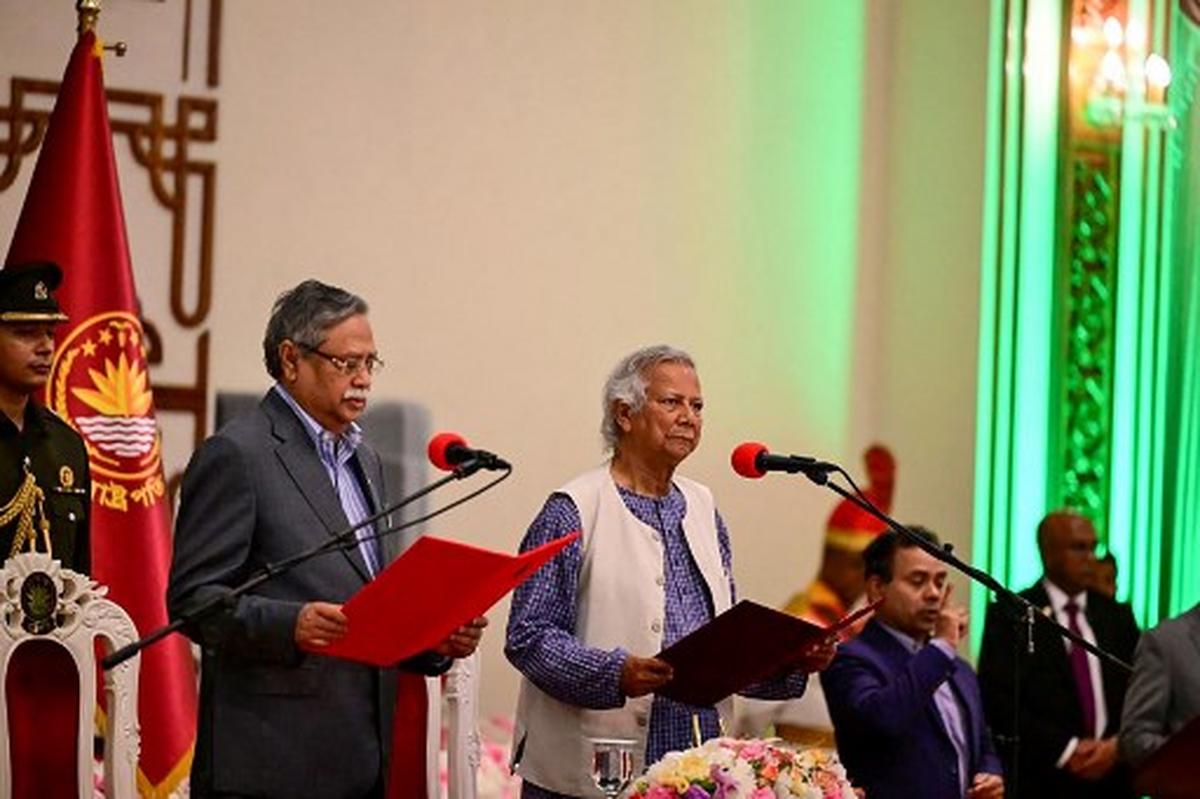
Nobel laureate Muhammad Yunus (C) is sworn in as the chief adviser of the new interim government of Bangladesh in Dhaka on August 8, 2024, as President Mohammed Shahabuddin (2L) administers the oath taking ceremony.
| Photo Credit:
MUNIR UZ ZAMAN
Prof. Yunus will lead the caretaker government, backed by military, till fresh elections are held in the country; these are expected to take place in 2025 or early 2026. Prof. Yunus has said that no elections will take place before proposed reforms to clean the system are complete, but political parties are pressing for an early completion of these reforms.
Also read:BNP grows restless as Yunus’ reform agenda pushes Bangladesh parliamentary election to 2026
Bhutan
Prime Minister of Bhutan Tshering Tobgay addresses the 79th United Nations General Assembly at U.N. headquarters in New York, U.S., September 27, 2024.
| Photo Credit:
Eduardo Munoz
On January 9, 2024, the People’s Democratic Party (PDP), led by former Prime Minister Tshering Tobgay, won the general election, winning 30 of the 47 seats in the National Assembly. The Bhutan Tendrel Party (BTP), a new party led by Pema Chewang, won the remaining seats, becoming the opposition party. On January 28, 2024, Mr. Tobgay was sworn in for his second term in office. (The leader of the largest party in the National Assembly is appointed Prime Minister by the King of Bhutan Jigme Khesar Namgyel Wangchuck).
PDP’s campaign centred on economic recovery, infrastructure development, and providing a boost to the private sector. Along similar lines, BTP campaigned for “a vibrant and prosperous Bhutan” through a robust private sector, effective and strong local governance, and establishing the Bhutan Idea and Innovation Bank.

Bhutan has been facing an economic downturn, with the average economic growth in the past five years standing at 1.6% and the tourism sector struggling post the pandemic. Youth unemployment has been at a record high, standing at 28.6% in 2022 per the National Statistics Bureau (NSB).
Taiwan
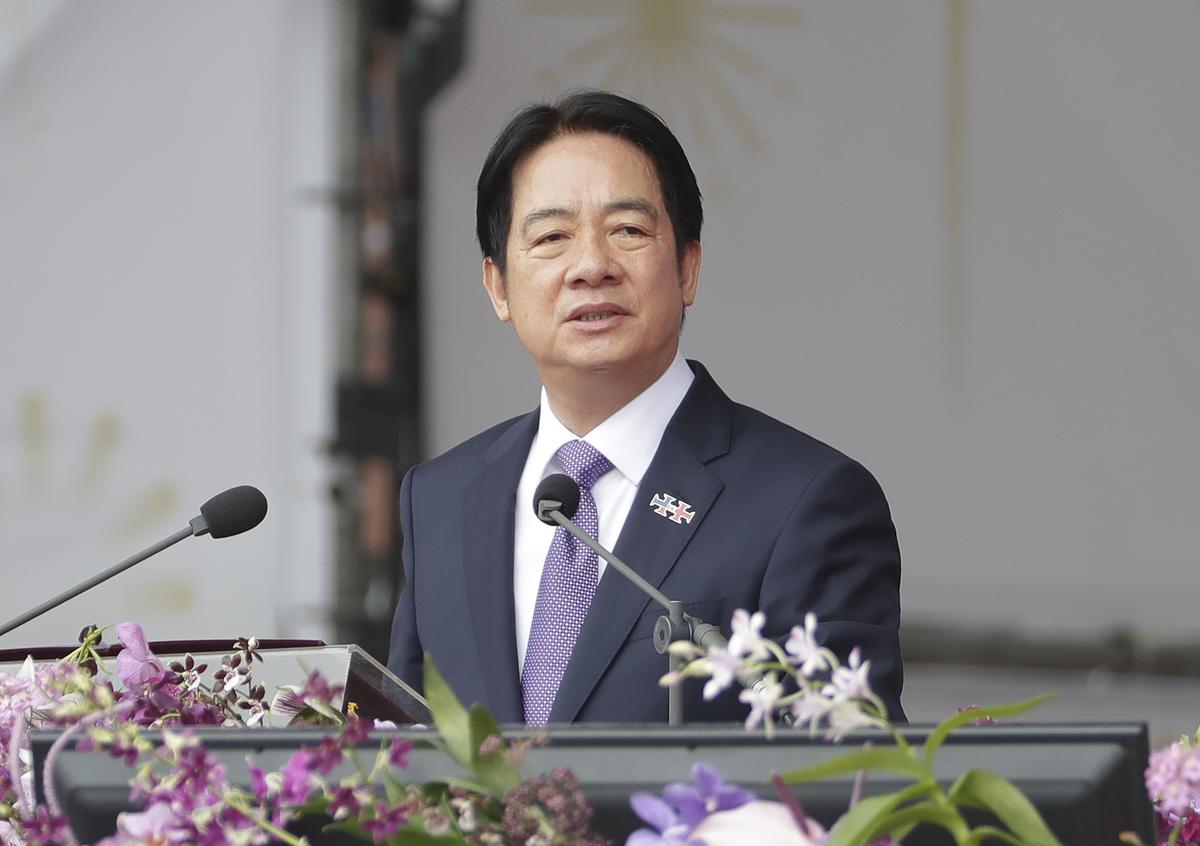
FILE -Taiwanese President Lai Ching-te delivers a speech during National Day celebrations in front of the Presidential Building in Taipei, Taiwan, Oct. 10, 2024.
| Photo Credit:
CHIANG YING-YING
In Taiwan, Lai Ching-te of the Democratic Progressive Party won in a national election held on January 13, 2024. The elections took place under the watchful gaze of China, which considers the island a part of its territory. Lai Ching-te’s commitment to defend the island from “intimidation” from China has raised concerns about a possible military response, especially involving the U.S., which provides Taiwan with military hardware and technology under a security pact.
India
Narendra Modi returned for a record third term as Prime Minister of the world’s largest democracy and most populous nation, riding high on nationalist Hindutva ideology in a year that saw the consecretion ceremony of the Ram temple in Ayoydhya. However, the results were not the whopping “400+” that the Bharatiya Janata Party had sought. The party lost its parliamentary majority and formed a government with the support of allies Telugu Desam Party and Janata Dal (United.) While the BJP-led NDA won 291 seats, the newly formed Congress-led INDIA bloc won 234 seats. The Lok Sabha now has a Leader of Opposition in the form of Rahul Gandhi, after a two-term vacancy.
Palau
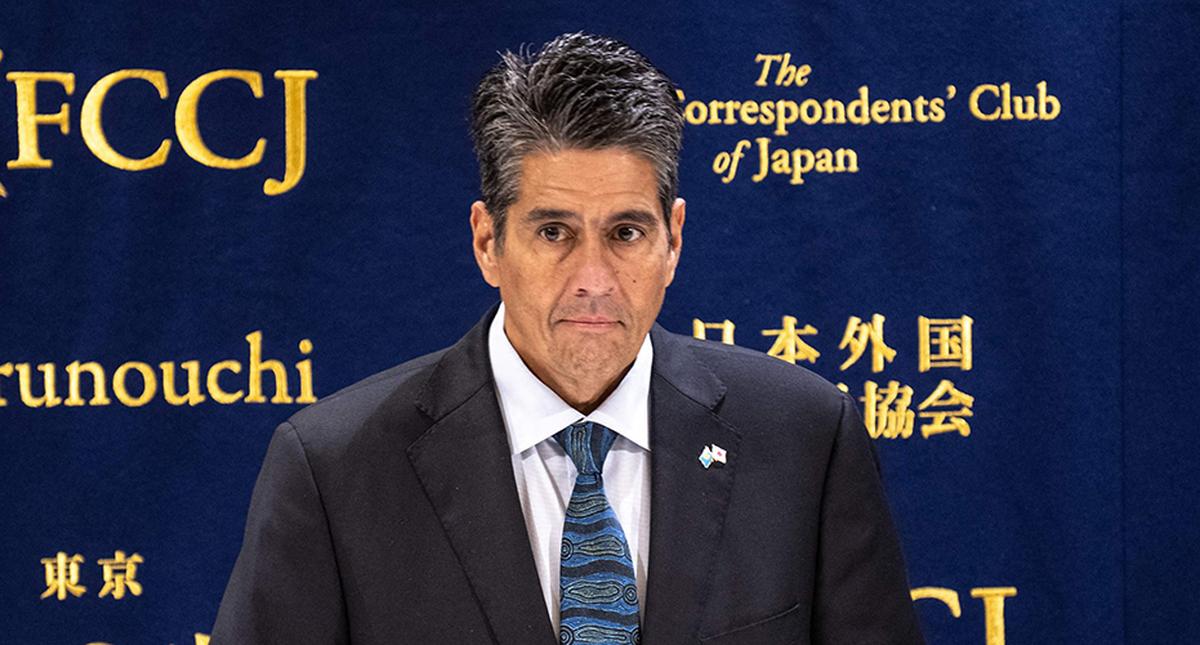
Palau’s President Surangel Whipps Jr. speaks during a press conference at the Foreign Correspondents’ Club of Japan (FCCJ) in Tokyo on June 5, 2024.
| Photo Credit:
PHILIP FONG
In a national election held on November 5, 2024, Palau re-elected incumbent president Surangel Whipps Jr for his second term. Mr. Whipps Jr reportedly won 5,626 votes, defeating his brother-in-law Tommy Remengesau, who received 4,103 votes.
Palau, which has a population of 18,000, is spread across an archipelago between the Philippines and Guam. The Melanesian microstate has a population of 18,000 and is one of the few countries that diplomatically recognises Taiwan, making it of strategic importance.
Tuvalu
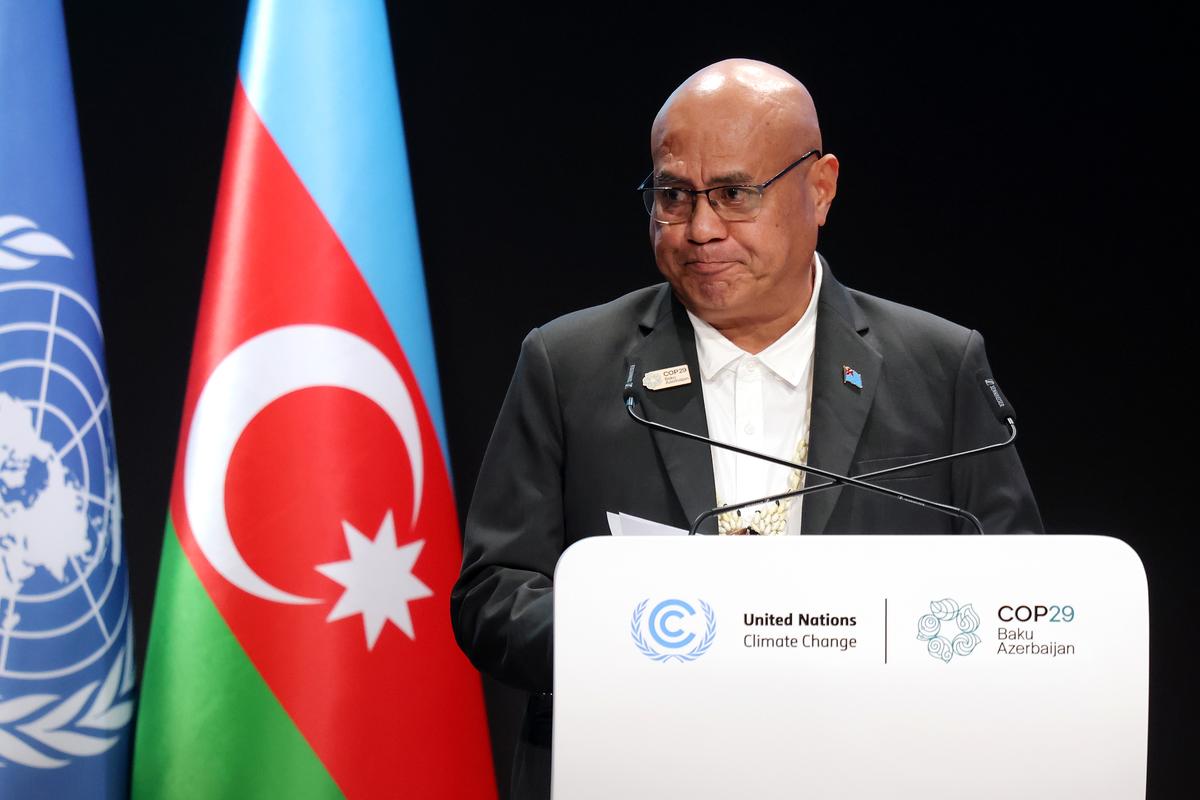
Tuvaluan Prime Minister Feleti Penitala Teo reacts after delivering a national statement during the high level segment on day three of the UNFCCC COP29 Climate Conference at Baku Stadium on November 13, 2024 in Baku, Azerbaijan.
| Photo Credit:
SEAN GALLUP
Lawmakers in the Pacific Island nation of Tuvalu selected Feleti Teo as its new prime minister in February 2024, four weeks after its general elections. Reports state that he is the first Tuvaluan prime minister to be nominated unopposed. He ousted pro-Taiwan leader Kausea Natano, fueling speculations that Tuvalu, one of the few countries which formally recognises Taiwan, might consider severing these ties and establishes relations with China.
Pakistan
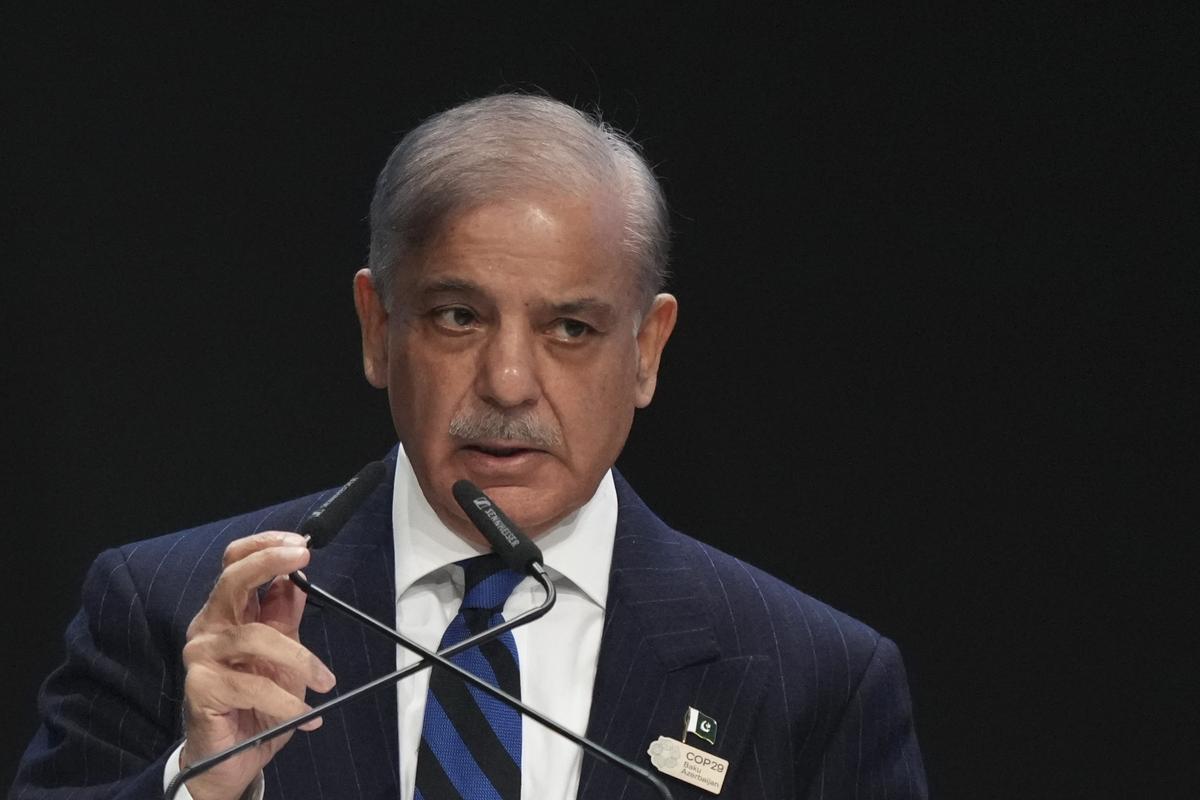
Pakistan Prime Minister Shehbaz Sharif speaks during a plenary session at the COP29 U.N. Climate Summit, Wednesday, Nov. 13, 2024, in Baku, Azerbaijan.
| Photo Credit:
Sergei Grits
Pakistan held national elections on February 8 amid sporadic violence, a countrywide mobile phone shutdown, and allegations of rigging. The elections took place as former PM Imran Khan and the top leadership of his Tehreek-e-Insaf (PTI) party remained in jail and protests continued in his support. Mr. Khan, presently serving a three-year jail term for corruption, earlier wrote in The Economist that the election could be a “farce” after the Election Commission of Pakistan rejected his candidature along with his senior party colleagues.
After a long delay in the vote count, independents aligned with former Prime Minister Imran Khan’s Pakistan Tehreek-e-Insaf (PTI) won the majority, notching up over the 100 seats in the 336-member National Assembly, followed by former Prime Minister Nawaz Sharif’s Pakistan Muslim League-Nawaz (PML-N), the Pakistan Peoples Party (PPP) and the Muttahida Qaumi Movement (MQM). No party won an outright majority, although PML-N emerged as the largest parliamentary party with 75 seats.
On 3 March, the National Assembly approved a new coalition government led by Mr. Sharif (PML-N), supported by PPPP, Muttahida Qaumi Movement Pakistan (MQM (P)), Pakistan Muslim League (PML), Istehkam-e-Pakistan Party (IPP), Pakistan Muslim League (Zia) (PML (Z)), Balochistan Awami Party (BAP), and National Party (NP).
Indonesia
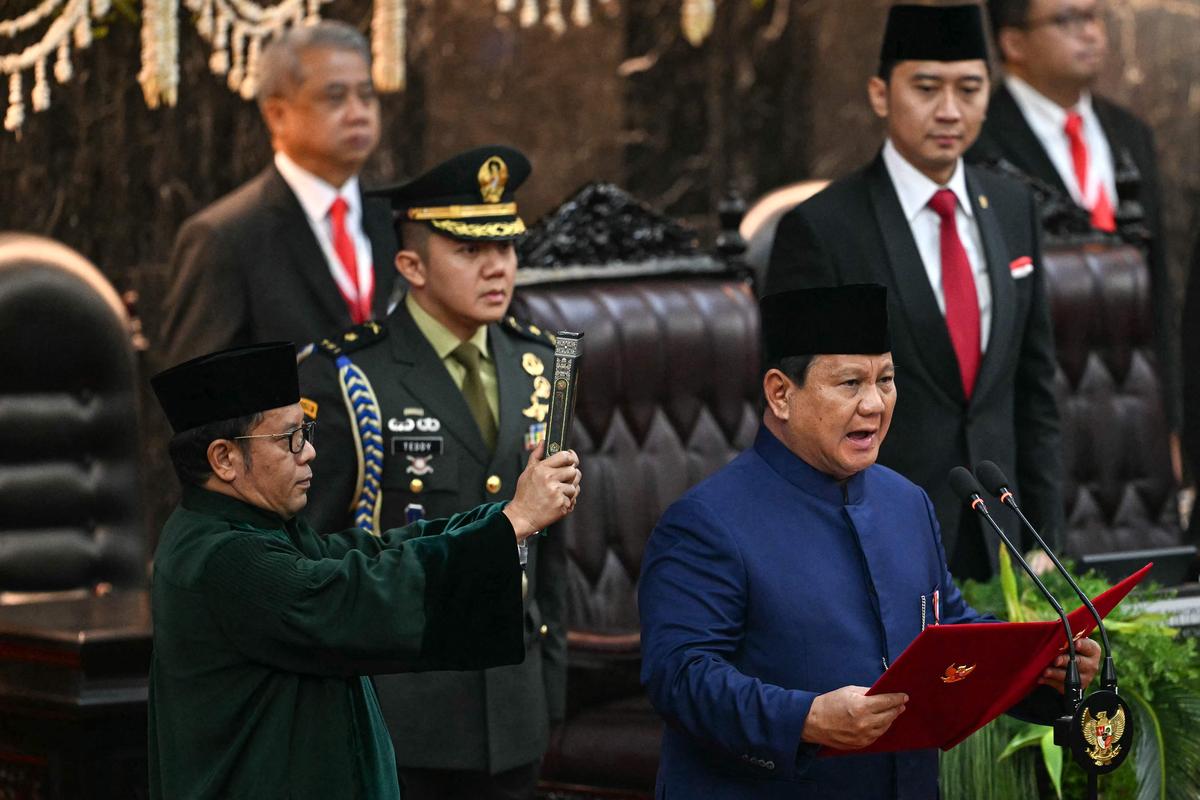
Indonesia’s new President Prabowo Subianto (R) takes the oath during the presidential inauguration ceremony at the Parliament building in Jakarta on October 20, 2024.
| Photo Credit:
BAY ISMOYO
Indonesia held presidential and legislative polls on February 14 amid concerns of corruption, vote buying, lack of opposition representation in the parliament and a decline of democracy under President Joko ‘Jokowi’ Widodo.
The election was won by former Defence Minister Prabowo Subianto, son-in-law of ex-President Suharto and a former special forces commander dismissed on chargest of human rights abuse. His running mate was Mr. Jokowi’s son, Gibran Rakabuming Raka, who was allowed by an Indonesian court to run for the vice presidency despite not meeting the minimum age requirement.
Iran
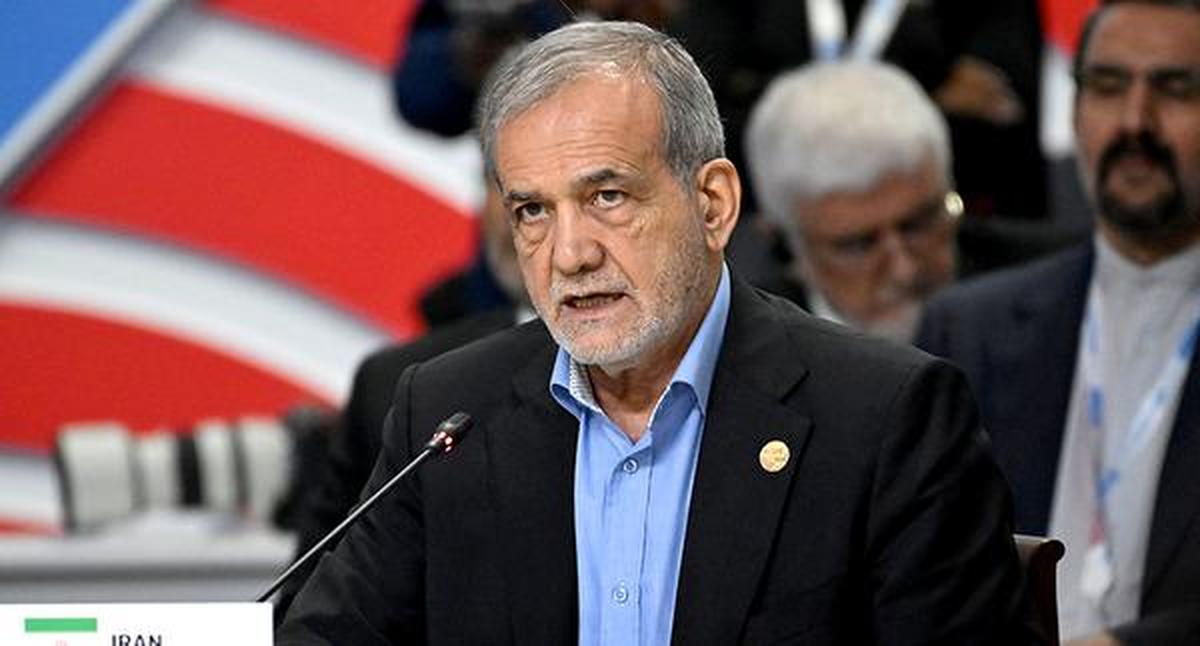
AFP ALEXANDER NEMENOV
| Photo Credit:
ALEXANDER NEMENOV
Reformist candidate Masoud Pezeshkian won Iran’s runoff presidential election on July 6, 2024, defeating hard-liner Saeed Jalili. A vote count offered by authorities put Mr. Pezeshkian as the winner with 16.3 million votes to Jalili’s 13.5 million.
Mr. Pezeshkian promised no radical changes to Iran’s Shiite theocracy in his campaign and has long held that Supreme Leader Ayatollah Ali Khamenei will continue to be the final arbiter on all matters in the nation. His poll platform included a promise for closer ties with the West and easing the enforcement of the country’s mandatory headscarf law after years of sanctions and protests.
Sri Lanka
FILE PHOTO: Sri Lanka’s President and National People’s Power (NPP) party leader Anura Kumara Dissanayake gestures as he leaves after casting his vote on the day of the parliamentary election in Colombo, Sri Lanka, November 14, 2024.
| Photo Credit:
Thilina Kaluthotage
The ruling alliance led by President Anura Kumara Dissanayake and the National People’s Power (NPP) secured a landslide win in Sri Lanka’s November 14 general elections, shattering records of strong governments of the past and making history in regions of the island dominated by ethnic minorities.
The NPP won 159 of the 225 seats in the House, thus gaining a two-thirds majority. This was followed by the Opposition Samagi Jana Balawegaya (SJB or United People’s Force) which won 40 seats. The Sri Lanka Podujana Peramuna, the party of the powerful Rajapaksas, only managed to win three seats, a steep fall from the 145 it had won in the 2020 general elections.
Japan
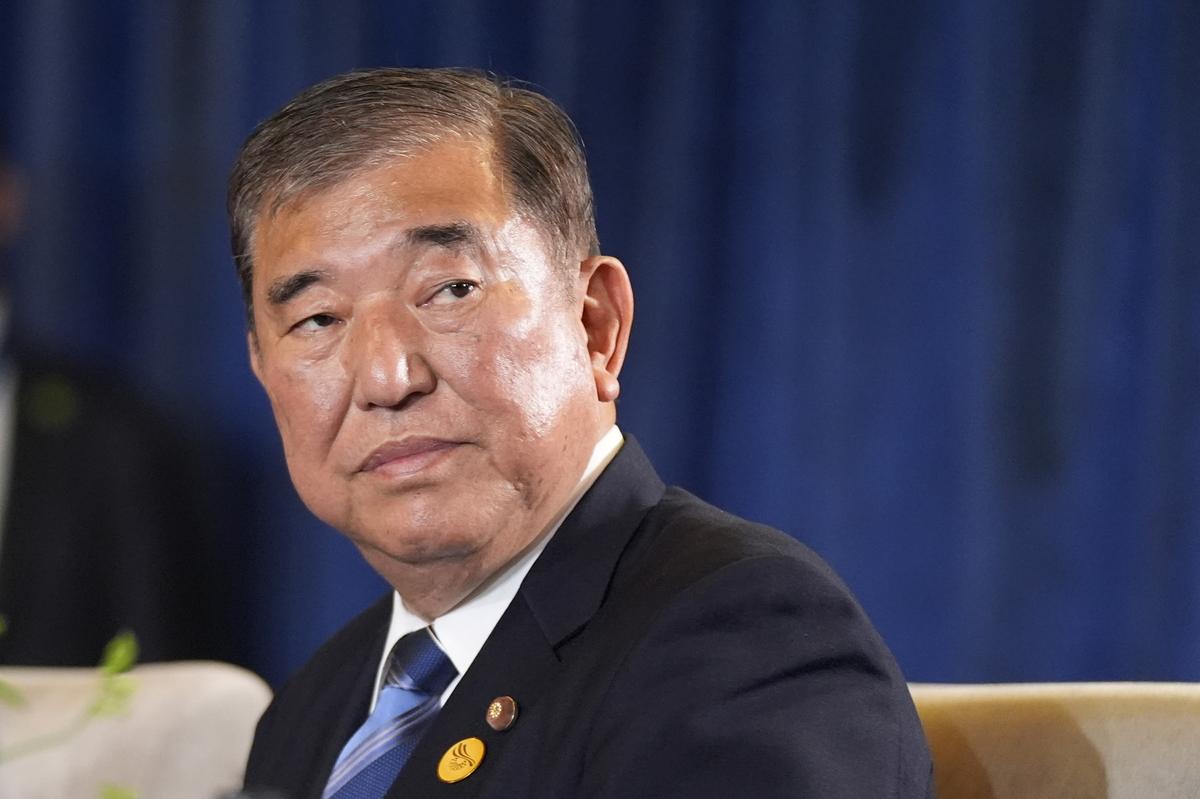
Prime Minister of Japan Shigeru Ishiba sits during a trilateral meeting with President Joe Biden and the President of South Korea Yoon Suk Yeol in Lima, Peru, Friday, Nov. 15, 2024.
| Photo Credit:
MANUEL BALCE CENETA
On November 11, 2024, Japan’s parliament re-elected Prime Minister Shigeru Ishiba. This followed even as the governing coalition comprised of the ruling Liberal Democratic Party and its junior partner Komeito, suffered its worst election loss in more than a decade, losing their majority in the 465-seat Lower House, in the October 27 election. The party suffered due to continued voter outrage over financial misconduct by Mr. Ishiba’s party.
Mr. Ishiba refused to step down post the loss, expressing his willingness to cooperate with additional coalition partners for greater stability and achieving his policy targets. He faces an opposition led by Yoshihiko Noda of the Liberal Democratic Party.
Published – December 31, 2024 11:16 pm IST


